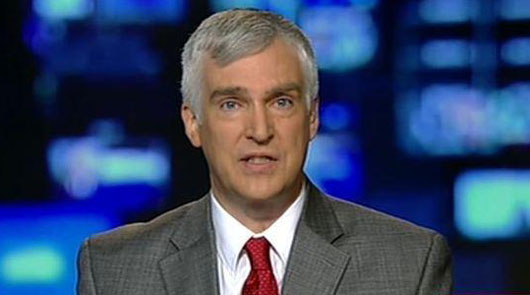by WorldTribune Staff, November 6, 2018
The Trump administration has “sound and serious policies” to deal with any nation or group which seeks to meddle in the 2018 midterm elections, said a former senior National Security Council (NSC) official.
Our enemies have been trying to meddle in our elections for many years. It didn’t just happen in 2016,” Fleitz said

“My hope is there won’t be any meddling,” said Fred Fleitz, a member of the WorldTribune Advisory Board who until last week was NSC chief of staff. “But if there is, I think there are going to be dire consequences for the nations and parties that do that.”
“I know that there are very, very sound and serious policies to stop any meddling in the 2018 election, and to hold any parties that do that accountable,” said Fleitz, who will soon take over as president of the conservative Center for Security Policy, a Washington think tank, according to a Nov. 6 report by the Washington Free Beacon.
The U.S. intelligence community and Pentagon plan counter-hacking attacks on Russia or China if election interference is detected, the report said. Such would constitute the first uses of American offensive cyber attack capabilities.
The National Security Agency and Fort Meade-based Cyber Command would be centrally involved in such operations which would likely target bank accounts and data of entities tied to election interference.
In a briefing on election security last week, Trump administration security officials said that elections will be held in about 10,000 local districts nationwide on Nov. 6.
“Every single one of those has a range of authorities and emergency plans that are in place already to be able to deal with a range of emergencies that happen,” a senior National Security Council official said.
The Department of Homeland Security is monitoring election infrastructure while the FBI and CIA are conducting intelligence gathering related to foreign election interference, the officials said.
President Donald Trump in September signed an executive order on election security that directs the imposition of sanctions against states caught engaging in election interference.
Fleitz, a former CIA analyst, also said the U.S. may not extend the New START arms treaty with Russia over concerns Moscow is not complying with the 2010 strategic arms accord.
Fleitz said Trump will decide in the future whether or not to extend the 2010 New START arms treaty. The treaty expires in February 2021.
Fleitz suggested Russia has not complied with New START. The treaty limits the United States and Russia to 1,550 deployed warheads.
“There is going to have to be a serious evaluation of the New START treaty – whether it is in American interests [and] whether Russia is complying with that treaty and then we’ll see if it will be extended,” Fleitz told the Free Beacon.
Fleitz praised Trump’s announcement that the United States would jettison the 1987 Intermediate-range Nuclear Forces Treaty based on Russian violations.
The INF Treaty was a good treaty for its day negotiated during the Cold War under President Ronald Reagan, he said.
“The problem is even the Obama administration had to acknowledge that the Russians were violating it but didn’t do anything about it,” Fleitz said.
“This is a priority for Ambassador Bolton that these treaties like this have to be fair and have to bind everyone, not just the United States.”
Russia violated the treaty by developing a ground-launched cruise missile with INF range and has deployed significant numbers of the SSC-8 missile.
“Now with Russia cheating, and with significant missile programs, not just by China but by Iran and North Korea, this treaty just didn’t make any sense,” he said. “If there is going to be an INF treaty it has to be a global INF treaty and for me this was just a no brainer.”
Fleitz also said Trump is taking on China’s unfair trade practices and theft of American intellectual property in ways no previous president has done.
“For years the United States has tolerated huge trade imbalances with the Chinese, the theft of intellectual property,” Fleitz said.
“The president has taken a different approach – he’s just not going to go along with it. We haven’t had a president prepared to confront the Chinese, maybe take on some short term economic pain to our country to make it clear that this behavior is unacceptable.”
Fleitz said he believes the pressure on Beijing is making a difference. “They see a president who is basically undeterred in his effort to press the Chinese for free and fair and balanced trade.”
Subscribe to Geostrategy-Direct __________ Support Free Press Foundation
